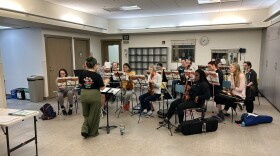The California Supreme Court ruled this week that a San Diego court must re-examine its decision to allow a criminal defendant to subpoena Facebook to obtain private social media posts and messages he alleged would help him in his defense.
The ruling issued Thursday laid out a series of factors for the trial court to consider when weighing whether to allow the defendant to gain access to his alleged victim's restricted posts and private messages.
The ruling stems from the criminal case of Lance Touchstone, a Northern California man charged with attempted murder for allegedly shooting his sister's boyfriend in Ocean Beach in 2016.
Touchstone sought to obtain information from the victim's Facebook posts that the defendant alleged would show his accuser was a violent person, bolstering a self-defense claim.
A San Diego Superior Court judge ruled in Touchstone's favor and ordered Facebook to release the information, leading to subsequent appeals.
In an opinion authored by Chief Justice Tani G. Cantil-Sakauye, she wrote that the trial court should consider a list of seven factors to consider when deciding whether good cause has been shown to grant the subpoena.
These "Alhambra factors" include whether the defendant has shown a "plausible justification" for acquiring the information and whether acquiring the material violates a third party's confidentiality or privacy rights, among others.
While the state Supreme Court declined to make its own determination on the subpoena's viability, it ruled for the trial court to re-examine the subpoena issue in light of these factors.
Touchstone's attempted murder trial in San Diego remains pending for a date still to be determined, as courts remain closed to the public and jury trials have been delayed indefinitely due to the COVID-19 pandemic.




